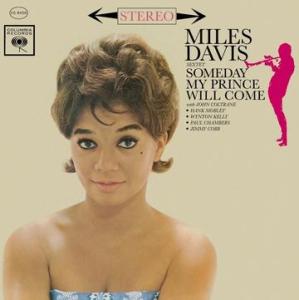More of the Music of Miles Davis
This Red Label reissue DESTROYED the similar copies we played it against, and was also surprisingly competitive with our Super Hot (and Super Noisy) Six Eye ref copy.
Most of these later pressings have superior clarity (compared to the earlier ones) but lack nearly all of the tubey magic. This one’s amazingly clean and clear, but still delivers on the tubey qualities — it’s richer, warmer, and sweeter than any other Red Label pressing we played.
I think that the very best Six Eye copies are still a step up in class [I don’t have to think it, I know it], but you can be sure that one of those would set you back a lot of bread. If you want to hear this music sound great without spending an arm and a leg, a Hot Red Label copy like this is the ticket. There’s lots of ambience, plenty of tubey magic, and amazing presence. Miles’ trumpet sounds amazing, with lots of breath and just enough bite. The clarity is INCREDIBLE.
Wonderful Music and Sound
The trumpet sound on this whole album is superb. It really jumps out of the speakers and forces you to listen to it, which is no doubt what Miles intended.
Of course the other giant on this record is Coltrane, who plays on two tracks. Coltrane fans will hear some prime blowing from the master here.
TRACK LISTING
Side One
Someday My Prince Will Come
Old Folks
Pfrancing
Side Two
Drad-Dog
Teo
I Thought About You
Blues No. 2
Someday My Prince Will Come
AMG Review
The lineup is Davis, pianist Wynton Kelly, bassist Paul Chambers, and alternating drummers Jimmy Cobb and Philly Jo Jones. The saxophonist was Hank Mobley on all but two tracks. John Coltrane returns for the title track and “Teo.” The set opens with the title, a lilting waltz that nonetheless gets an original treatment here, despite having been recorded by Dave Brubeck.
This is relaxed session; there are no burning tracks here, but there is much in the way of precision playing and a fine exposition of Miles’ expansive lyricism.
